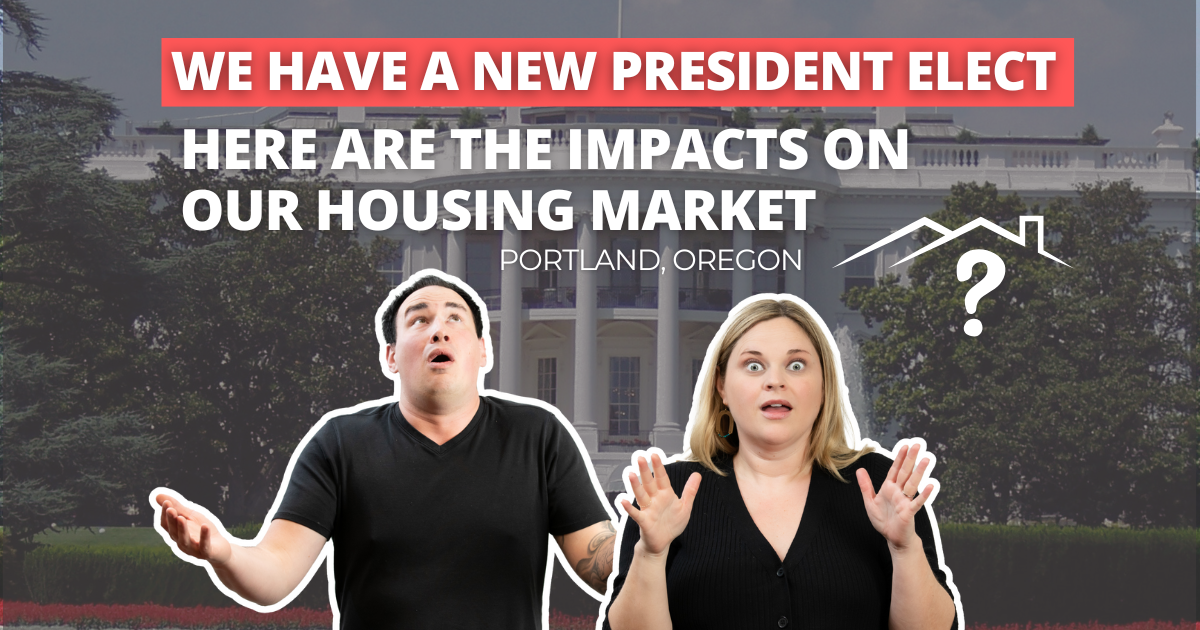The housing market is a frequent topic of speculation during election cycles, particularly when a new president is elected. Many wonder how leadership changes will affect home values, mortgage rates, and the overall real estate landscape. While these concerns are natural, it’s important to understand the dynamics of real estate and how they interact with political shifts. Let’s break it down.
Real Estate Isn’t the Stock Market
Unlike the stock market, which reacts to news and policy shifts almost instantly, the real estate market operates on a much slower timeline. While stock prices and cryptocurrency values can fluctuate dramatically within hours of major announcements, the effects of political changes on housing typically take years to materialize.
Imagine if home values fluctuated daily like stocks—stressful, right? Fortunately, real estate remains a more stable and long-term investment.
Election Years and Home Sales
Historically, home sales have remained resilient during election years. In fact, data shows that home sales increased in nine out of the last eleven presidential elections. The exceptions include periods of broader economic challenges, like the Great Recession. This resilience suggests that elections themselves rarely cause significant disruptions in the housing market.
Mortgage Interest Rates: The Immediate Impact
One area where presidential elections might have a more immediate influence is mortgage interest rates. Changes in administration can lead to shifts in monetary policy or economic sentiment, which may affect rates.
However, predicting rate trends can be tricky. Over the past year, numerous rate cuts were anticipated, but none materialized as expected. Additionally, lower rates don’t necessarily solve affordability issues—without increased housing supply, lower rates often push prices higher due to heightened demand.
In short, while mortgage rates are an important factor, they are influenced by a multitude of factors beyond just who is in office.
Housing Supply and Demand: The Real Challenge
The fundamental issue in the current housing market is supply and demand. Regardless of political shifts, the market needs more housing supply to meet demand. Lower mortgage rates without addressing this imbalance could exacerbate affordability challenges.
Relocation Trends Post-Elections
A recurring joke during election years is people vowing to move to another country, like Canada. While this notion gains attention every election cycle, there’s no significant evidence that it affects the housing market in a meaningful way. The supply and demand issues remain much larger drivers of market trends than hypothetical mass relocations.
What Should Homeowners and Buyers Do?
If you’re considering buying or selling, don’t let election-year uncertainties derail your plans. There’s no historical data to suggest that a new president significantly impacts real estate decisions in the short term. Instead, focus on your personal circumstances, financial goals, and long-term plans.
If you’re concerned about how policy changes might affect your real estate strategy, it’s always a good idea to consult with a local market expert who can provide tailored advice.
Key Takeaway
The election of a new president is unlikely to sway the housing market in dramatic ways. While mortgage rates and policy changes may eventually play a role, the real estate market’s long-term nature offers stability amid political transitions. Keep your focus on the fundamentals—supply, demand, and your individual goals—and make informed decisions with expert guidance.

